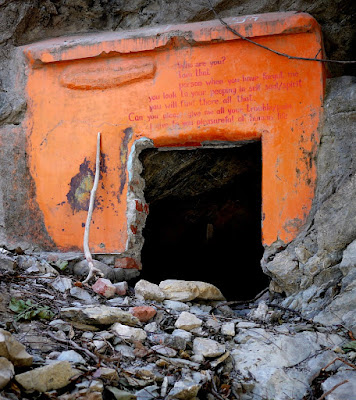
Now two weeks into India and our yoga adventure, I've had time to reflect upon our time and backpack/trek through the Himalayas. Nepal scenery flashes before my mind's eye during daily meditation and I fall more in love with the experience every time.
The trek was different than any other backpacking we've done before because you don't have to worry about carrying your tent, stove or food. Everything in the way of food and accommodation is available. That's not to say it isn't challenging because hiking for 19 days and 130+ miles pushed us physically and mentally. The elevation gain from 2,700 ft to over 17,700 ft definitely stretched us and hardened our boot-derived calluses. But wonderful and enchanting it was.
Beyond the magical scenery that unfolded as the mist and rain cleared, the people were a true delight. The Nepali people were all extremely nice and very accommodating. As we climbed higher into the mountains, the Tibetan influence became stronger and it was here that Amalia & I fell in love with the Tibetan people. Genuine souls whose friendliness and welcoming nature seem unbounded.
It's funny but when you are in the midst of an experience some of the beauty and subtlety is lost to your grossest senses, but later on with time to reflect, missed sublime impressions slowly wash over you in waves of enlightenment. It's as if your in-the-moment consciousness allows only the most "pertinent" details to occupy your mind and lets the other impressions sift into your memory for later review and computation. If you take the time post-experience to let these memories re-emerge, deeper lessons and intuitions-missed will integrate into your full, overarching consciousness. For that reason, many experiences are lost to time because we are generally too busy to be in the moment and too busy to sit back and let the memories unfold their most profound lessons. And strangely only years later do we realize the importance of those moments lost, often to the detriment of relationships and our personal growth.
So for now, I am blessed to have both the wonderful experiences and the time after to discover and savor the truest "marrow from the bone." One piece of wisdom thus learned is to never let the true moments of friendship or beauty be washed over by details or perceived duties.
In our philosophy class yesterday, we asked the eternal question, why are we here?
We are here to hear one another.
There is no greater task or accomplishment we must reach other than to connect and truly understand our fellow human beings. All things material and immaterial can and will fall away, leaving only our relationships with any lasting meaning.











































